Yamaha GP1800 Review
The 2018 Yamaha GP1800 returns largely unchanged from last year’s offering – the long high performance craft among the year’s best sellers.
Engine: Four-cylinder 1,812cc
Fuel Capacity: 18.5 gallons
Storage Capacity: 24.6 gallons
Seating Capacity: 2
MSRP: $13,999
Yamaha’s GP roared back into the lineup in 2017, bringing with it the familiar mix of horsepower and handling. Consumers liked what they saw. By year’s end, the GP1800 would muscle its way into the Top 10 best-selling models list, the lone high-performance model in a sea of affordable recreational craft. Yes, the fact that the GP1800 was the new kid on the block helped its popularity, but its price didn’t hurt. Compared to its closest competitor, the craft was over $1,000 cheaper.
As typically happens, the sophomore year for the Yamaha GP1800 includes little change, save for new colors and graphics and a switch to a “sticky” vinyl material to better anchor the rider in the saddle. What that leaves, however, is arguably one of the most potent race-ready PWC currently on the market.
Laser Focus
As we saw last year, the GP1800 borrows heavily from existing models. Fittingly, the engine is the most powerful Yamaha offers, the 1.8-liter Super Vortex High Output (SVHO). The SVHO produces more torque than any other engine in the Yamaha lineup, increased supercharger air intake capacity and boost, a high-performance intercooler, and modified fuel-injection system to feed its appetite. That engine is matched with a 160mm eight-vane pump designed for this application and the lightest hull and deck construction Yamaha offers, the brand’s proprietary NanoXcel 2.
Performance junkies know where we’re going with this. High horsepower and lighter than average weight equals impressive power-to-weight ratio. With my relatively light 155 pounds in the saddle and calm conditions, I noted acceleration powerful enough to run with most any craft currently on the water. Top speed flirts with 70 mph (let’s call it 68 mph for the record), easily surpassing the 65 mph mark. Most of the existing parts for the former FZR will also work with the engine, including RIVA’s plug-and-play MaptunerX, which promises to push the craft to a heady 77 mph for less than $1,000. Suffice it to say the 2018 Yamaha GP1800 is potent in stock form, and a beast for those who elect to tinker.
As to the hull entrusted with all that power, it’s from the ever-versatile VX series, or to be precise, borrowed directly from the VXR. A “race-infused” keel shape, soft chines at the bow, and well-defined strakes make this a craft that turns with brutal ferocity. As I noted last year, that ferocity can be overwhelming for anything less than a racer or serious high-performance enthusiast. I found the craft’s primary limitation to be, well, me. Or more to the point, my deficit in upper-body strength. With so much power on tap and a nimble hull that seems to respond best to a less severe inside lean, I found myself straining to stay atop the craft during the fastest high-speed turns. That super aggressive handling is both positive and negative in that way; certainly perfect for its intended audience, but those a notch below will wish they could take some of that upper-body requirement out of the equation, like Sea-Doo has done with the RXP-X’s ErgoLock saddle and angled foot chocks.
Again, however, Yamaha markets the craft toward “experienced high-performance enthusiasts” and closed-course racing. Most consumers who fit that bill should be more than able to get the most out of the craft.
Targeted Extras
As with other high-performance models, features on the 2018 Yamaha GP1800 are focused on the target. Cruise control and no-wake mode are missing, but RiDE, Yamaha’s dual-throttle system is prominent. RiDE lets the craft start in a neutral mode, and be switched between forward and reverse with the pull of the appropriate throttle, the starboard-mounted conventional trigger and the port-mounted RiDE lever. Pulling the RiDE lever at speed also lets the reverse bucket redirect thrust to provide slowing power without diving the craft at the nose. RiDE has strong practical benefits, but racers can also experiment with it, decelerating just slightly before initiating a turn to drop the bow.
Other features of the 2018 Yamaha GP1800 include electric trim to further adjust the running angle, 24.6 gallons of storage (split between the bow and deep, bottle-ready glovebox), spring-loaded boarding step, and genuine HydroTurf traction mats for confident traction. A bolster in the saddle combines with the new sticky material to secure the rider in position. Pistol-style grips also prove to be a good match to the power and handling.
Competitors? The aforementioned Sea-Doo RXP-X is the obvious. The RXP-X offers similar power and aggressive handling, but does transfer some of the strain of turns to the rider’s legs via the ErgoLock system. Sea-Doo charges a more premium price, $15,399, but includes two acceleration profiles, a new adjustable riser for the handlebars (interesting since the GP1800 replaced the FZR/FZS models which also featured adjustable handlebar heights), and a new “launch control” feature to provide better acceleration. Kawasaki’s Ultra 310 mix of the 310X ($15,299), 310X SE ($15,799) and 310R ($16,299) push the price point even higher, but feature bigger hulls that are possibly superior in rough water.
Clearly, the 2018 Yamaha GP1800 knows its mission, and has staked out a specific territory; speed, acceleration and incredible handling, in a two-passenger format all for just $13,999. That’s a combination performance types can appreciate…to the checkered flag and beyond.
Get PersonalWatercraft.com in your Inbox!
Like PersonalWatercraft.com on Facebook
Comments
Most Popular
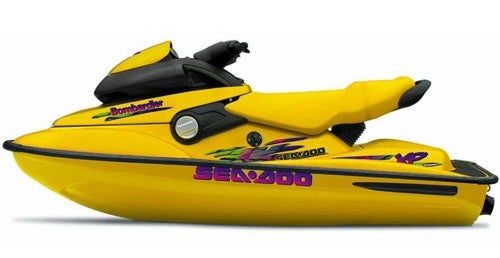
Remembering the Sea-Doo XP
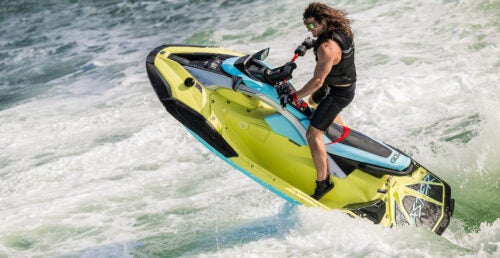
2025 Yamaha JetBlaster PRO 2-Up Review
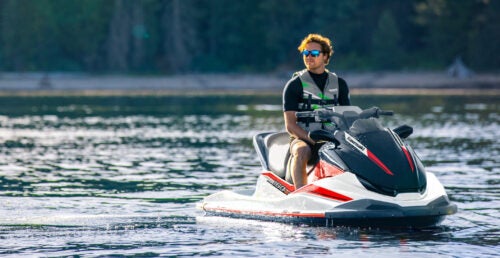
2024 Kawasaki Jet Ski STX 160X Review
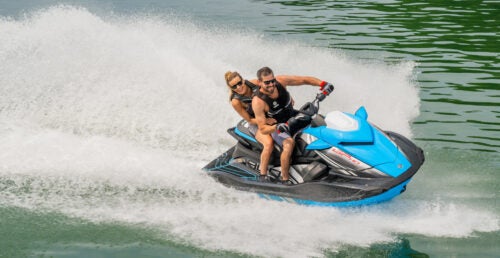
2024 Yamaha GP HO Review
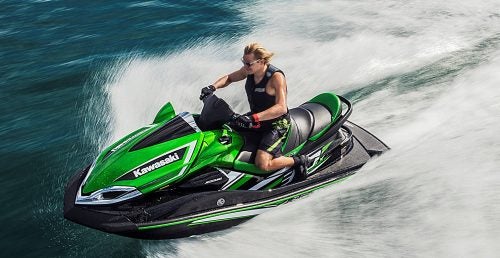
2017 Kawasaki Jet Ski Ultra 310LX Review
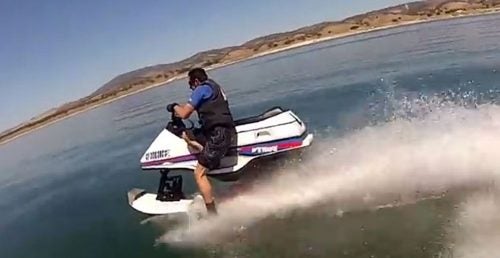
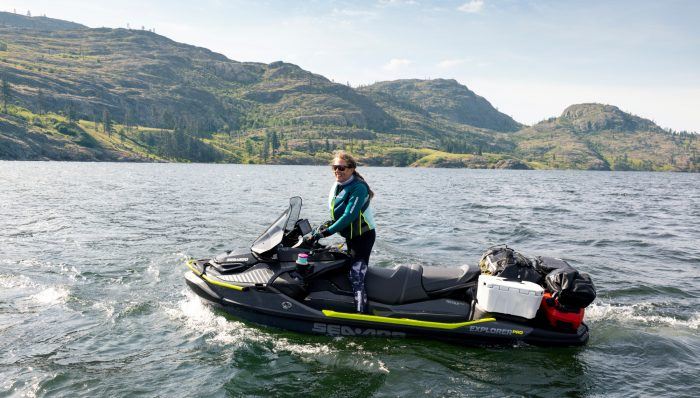
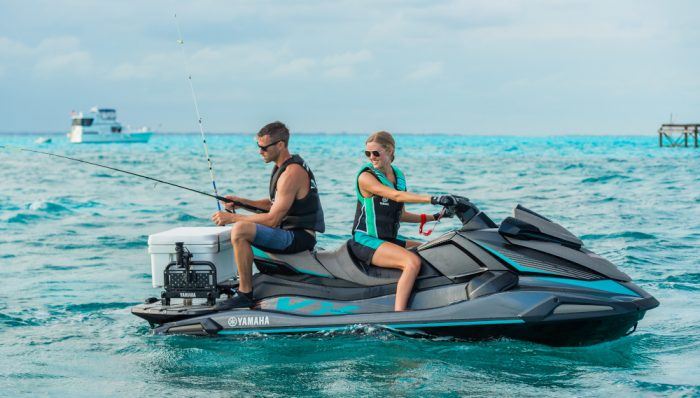
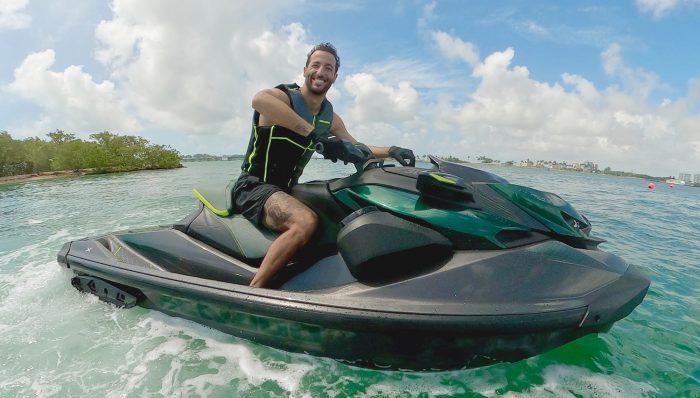
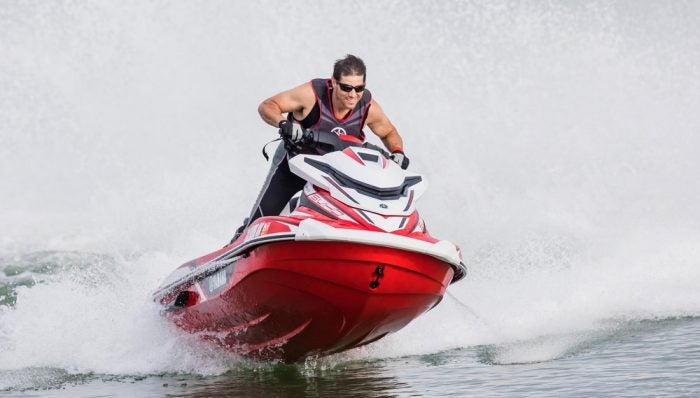
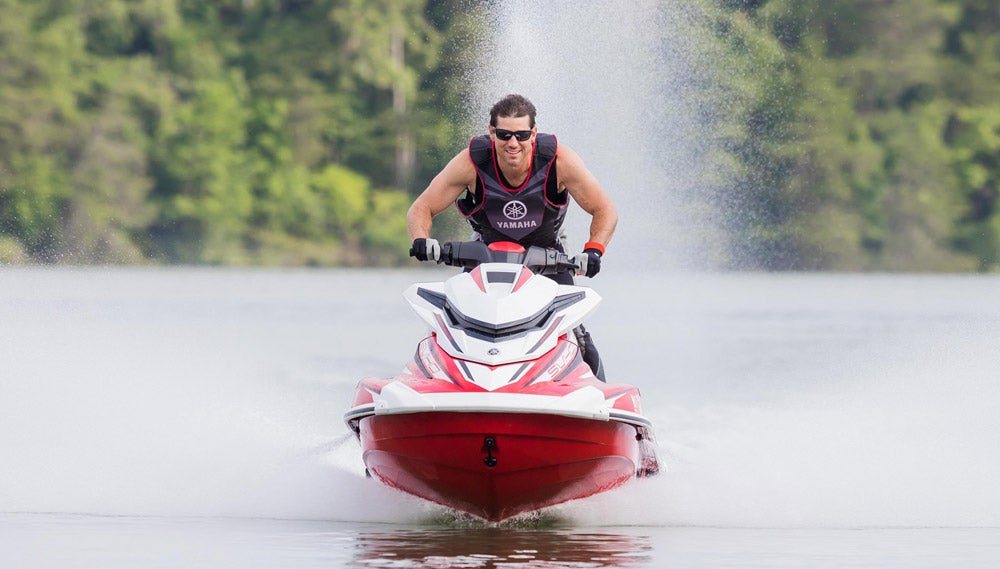
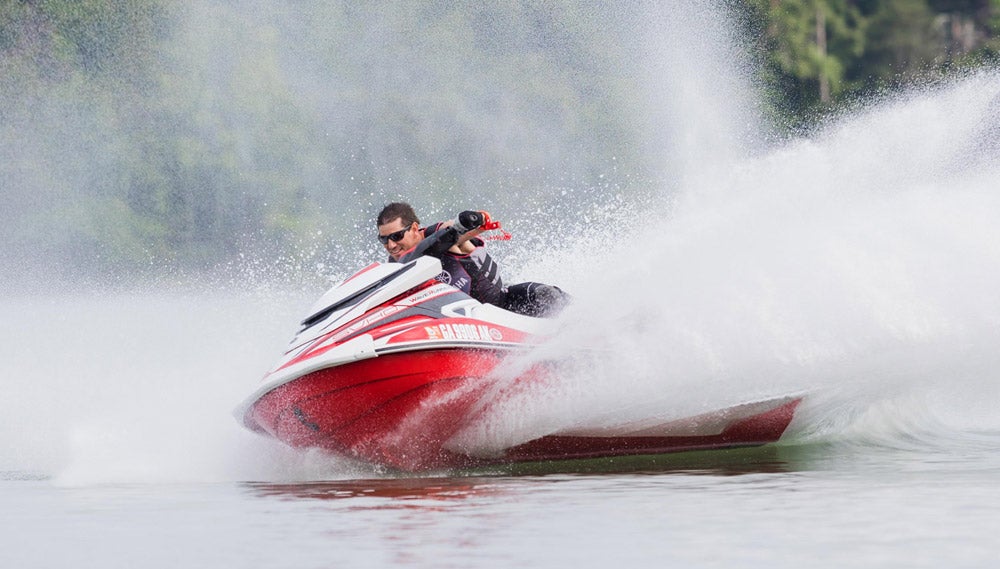
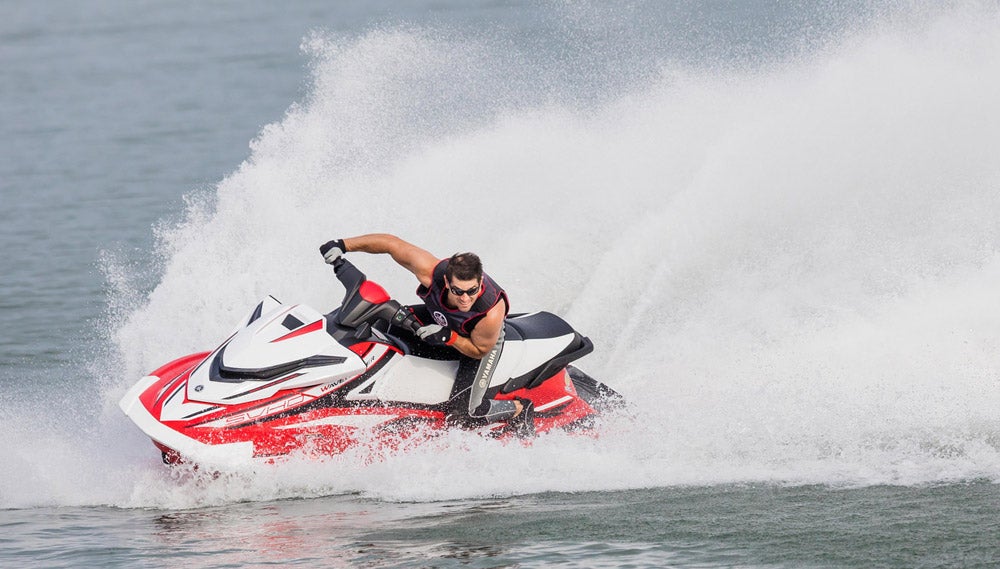
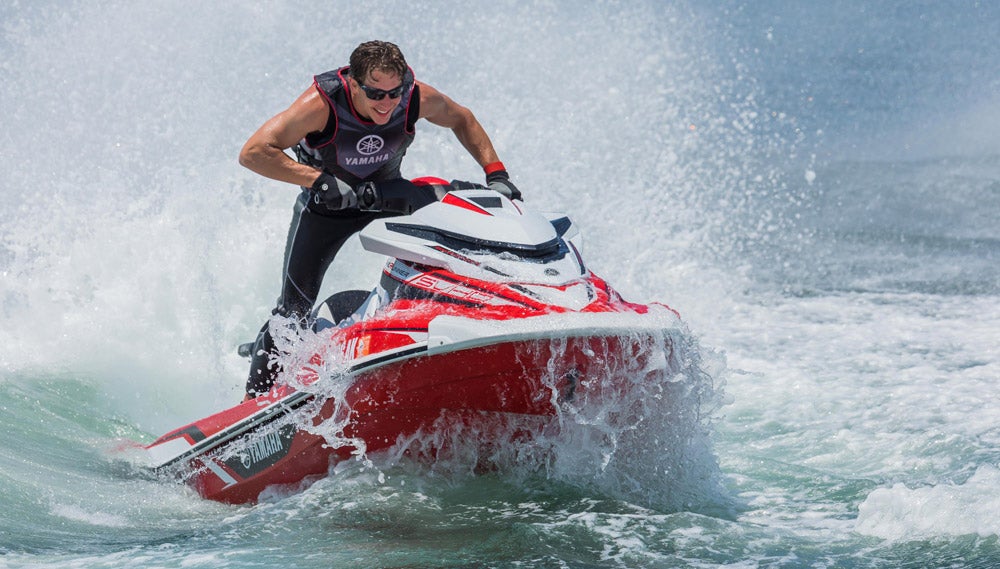
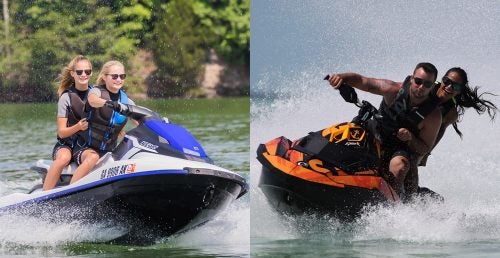
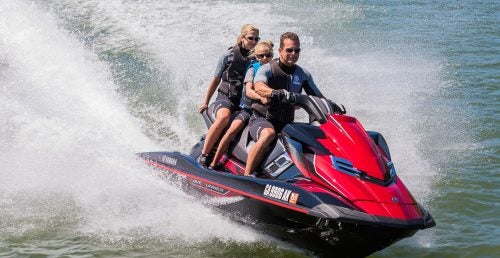
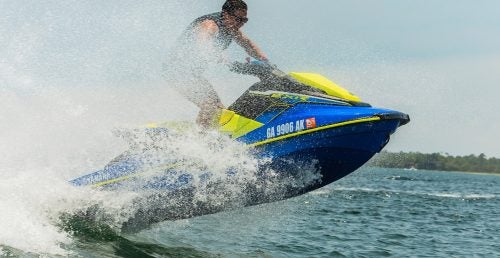


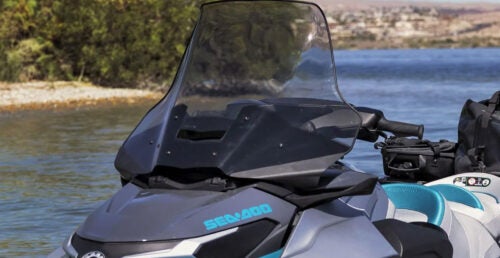
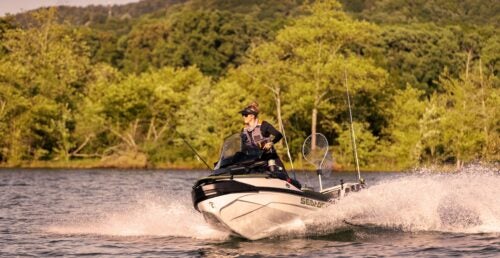


 Your Privacy Choices
Your Privacy Choices